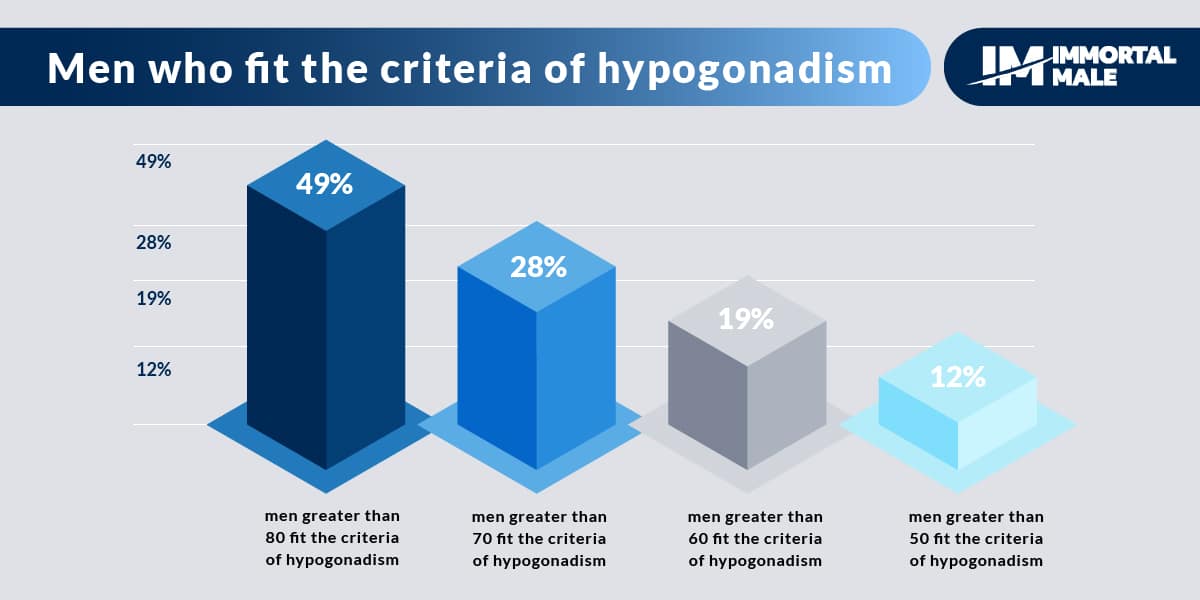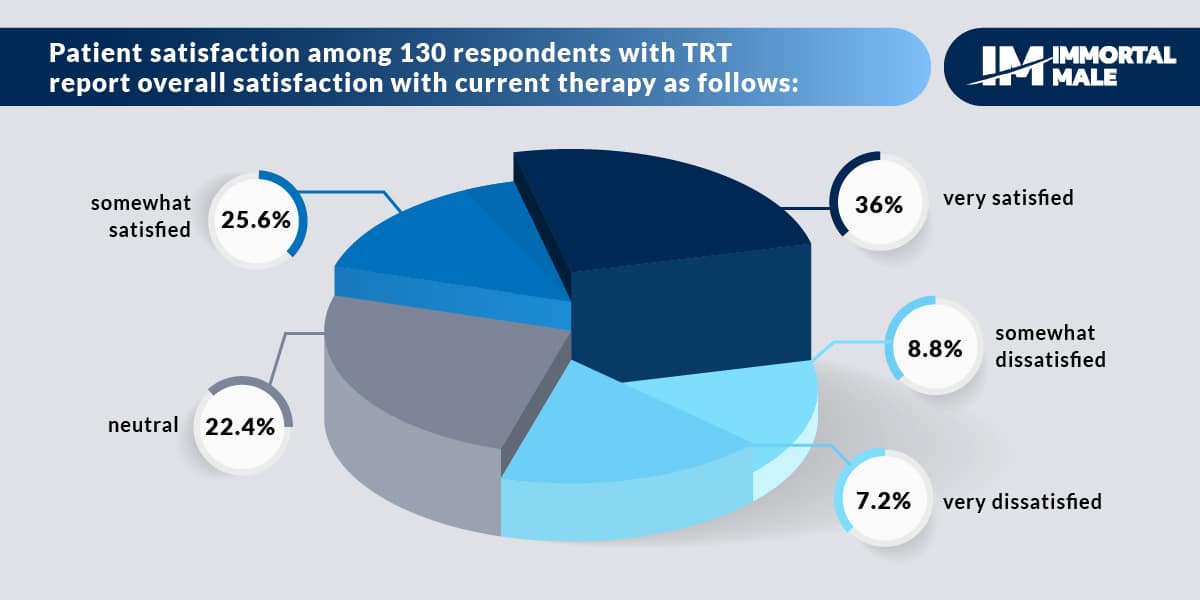
This hormone not only helps to promote a more masculine physique and sexual health but also works to maintain optimal fat levels, cholesterol, and glucose amounts for your body’s benefit.
Once you hit your teenage years, average testosterone levels are at their highest and remain this way until the mid-thirties. At that point, they start to dwindle by one to two percent every year.
Factors such as age, genetic makeup, and any pre-existing health problems all play a role in defining your natural production of testosterone – typically young men with healthy genes who experience no chronic illnesses will have higher amounts than someone older having other medical concerns.
To measure testosterone levels in the body, a blood test is conducted. This involves the collection of a sample of the patient’s blood and analyzing it for the content of hormones such as testosterone.
Generally, free testosterone levels are measured in the serum, while bound testosterone is measured by the total testosterone level.
Testosterone levels typically decline with age; however, they can vary drastically based on genetic makeup and pre-existing medical conditions.
It is important to note that the accuracy of the testosterone levels test depends on the time of day and other factors such as recent physical activity or stress levels.
Ages 9-12: Between 75 and 1,050 ng/dL
Ages 13-14: Between 300 and 1,200 ng/dL
Ages 15-16: Between 400 and 1,200 ng/dL
Age 17+ (Adult): 250 – 830 ng/dL
30s: 200 – 720 ng/dL
40s: 180 – 600 ng/dL
50s : 120 – 500ng/dL
60s: 100 – 400 ng/dL
It is essential to understand that these levels are just average normal testosterone levels, so results may vary from person to person.
If you have any questions or concerns regarding your hormone production, it is always best to consult with a professional and get a testosterone levels test. They can order blood tests and give you the appropriate advice based on their findings.
By understanding average testosterone levels by age range and being aware of how they fluctuate, you can take proactive measures to ensure your health and well-being in the long run.
Additionally, be mindful of any sudden changes that could signify an underlying issue that needs medical attention. With this knowledge, you will be better equipped to stay safe and healthy for years to come.
These are the baseline values for testosterone, but a doctor may suggest other ranges for individuals based on their specific health needs.
It is always best to consult with a professional if you have any doubts or questions regarding your hormone levels.
Talk to your healthcare provider if you’re concerned about your testosterone production and they can order blood tests and give you appropriate advice as needed.
Age 18-29: The normal testosterone level for men aged 18-29 is between 264 – 916 ng/dL. Anything below 264 is considered low or deficient.
Age 30–39: The normal testosterone level for men aged 30–39 is between 241 – 827 ng/dL. Anything below 241 is considered low or deficient.
Age 40–49: The normal testosterone level for men aged 40–49 is between 216 – 790 ng/dL. Anything below 216 is considered low or deficient.
Age 50+: The normal testosterone level for men aged 50 and above is between 196 – 667 ng/dL. Anything below 196 is considered low or deficient.

Testosterone replacement therapy (TRT) can provide numerous health benefits for men with testosterone deficiency. Normalizing testosterone levels helps to increase energy and reduce fatigue, as well as improve mood, cognitive function, bone density, and immune system health. It also aids in weight loss by increasing lean muscle mass and decreasing fat stores.
Additionally, TRT has been linked to an improved libido and sexual performance, as well as a decrease in the risk of heart disease.
The side effects of TRT are usually minimal when monitored closely by a healthcare professional. In short, TRT can help to improve the overall quality of life for men with low testosterone levels through increased physical and mental well-being.
Improved energy levels: TRT can help to increase stamina and reduce fatigue, allowing men to complete tasks with more ease and efficiency.
Enhanced muscle mass: Testosterone therapy can help to build muscle mass in men who have low testosterone levels. It may also improve strength and performance in athletic activities.
Increased libido and sexual function: Low male testosterone levels can cause a decrease in sex drive. Replacement therapy can help to restore these functions, leading to increased sexual satisfaction for both partners.
Cognitive improvement: Studies suggest that having sex hormones in the normal range can improve memory, focus, and decision-making in some men with low T.
Improved mood: Many people with low free testosterone levels experience depression and anxiety, but sex hormone therapy can help to reduce these symptoms.
Reduced risk of heart disease: Low testosterone is associated with an increased risk of heart disease and stroke in the aging male. Testosterone replacement therapy may help to reduce this risk.
Improved bone health: Testosterone helps to strengthen bones and reduce the risk of osteoporosis in men with low levels of the hormone.
Balanced hormones: An average testosterone level can help to restore balance in other hormones, such as estrogen and cortisol. This can lead to improved overall health.
Decreased body fat: Low levels of testosterone are associated with higher levels of body fat, particularly around the midsection. Male sex hormone therapy can help to reduce this fat and improve body composition.
Reduced risk of type 2 diabetes: Low testosterone can increase the risk of type 2 diabetes. Hormone replacement therapy may be able to help reduce this risk in men with low T.
Improved hair growth: Testosterone is important for hair growth, so hormone replacement therapy can help to restore fullness and thickness in men with low levels of the hormone.
Increased self-confidence: Many men feel better about themselves when they have normal testosterone levels, which can lead to increased self-confidence. This benefit can translate into improved relationships and job performance.

Are you or a loved one searching for the answer to the question, “is TRT dangerous?” Immortal Male is a premier provider of testosterone replacement therapy. At Immortal Male, patient safety and comfort are the priority from day one. Patients are able to contact a team of educated Immortal Male employees with questions about testosterone facts at any time during the TRT therapy process.
Before starting treatment, patients are evaluated for hypogonadism through testing at an accredited laboratory and communication with an Immortal Male nurse. Patients will also be able to speak with the Immortal Male staff to help develop a treatment plan that suits their lifestyle and individual goals for testosterone replacement therapy results. Once treatment begins, patients will be well on their way to a higher quality of life.
Throughout the entire treatment process, patients will be able to ask questions and work with their provider to adjust the treatment as necessary. Immortal Male makes testosterone treatment an accessible option for any man seeking relief from the symptoms of hypogonadism. If you or a loved one find yourselves wondering, “what are testosterone levels by age ?” and want to learn more, contact Immortal Male today.
Immortal Male is an online clinic that helps men optimize their hormones.
As part of your membership and as medically indicated, physicians prescribe medications, and recommend supplements that are delivered to you from the comfort of your home.